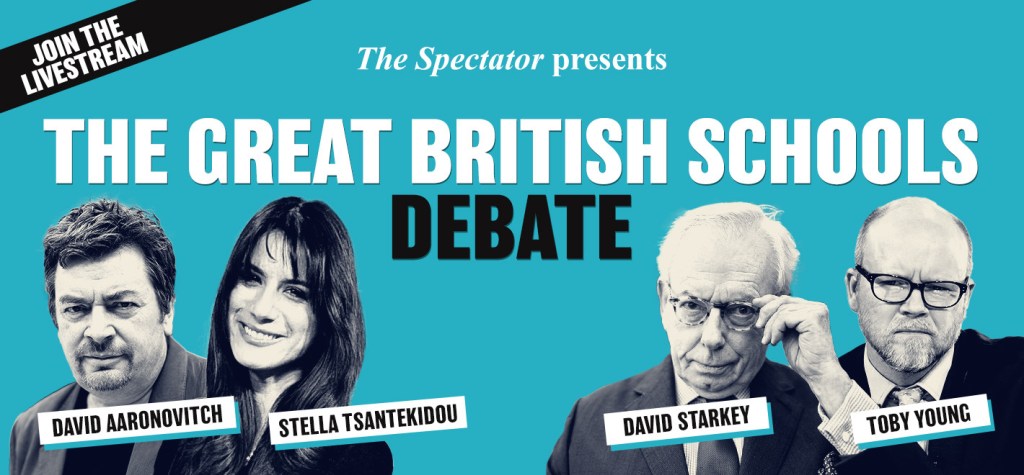In case you hadn’t noticed, it’s Eid. But of course you noticed. You’d have to be living in a cave not to be aware that today marked the end of the Muslim holy month of Ramadan. That’s because nearly all public bodies, along with a plethora of private institutions, have been busy on social media reminding you of the fact.
From the Prime Minister, the Royal Family, the Army to the BBC, all the principal manifestations of the state have been at it. Our public broadcaster put on a special Eid Live show on BBC1, followed with another programme, Celebrity Eid. Our private bodies have been following suit, with such unlikely candidates as the Formula 1 team McLaren and Leeds United football club among those joining in the chorus of ‘Eid Mubarak’.
Our public broadcaster put on a special Eid Live show on BBC1, followed with another programme, Celebrity Eid
Unsurprisingly, this has aroused much anger on social media, with accusations of cultural cringe, opportunism, servility and double standards. Many noticed that Prime Minister Keir Starmer was keen to release his message on Sunday, but chose not to use that occasion to wish Happy Mother’s Day to the nation. The fact that the Royal Family has marked the date, but has been not so forthcoming on Christian festivals, has also generated resentment. One X user captured the mood: ’The King of England has spent an incredible amount of time and talent acknowledging and celebrating Ramadan. Yet, Charles is the head of the Church of England. A Christian Church, which he flatly ignored on Ash Wednesday and Lent.’
People are right to feel aggrieved. Such gestures seem symptomatic of a society beholden to asymmetrical multiculturalism, a self-contradictory but widespread form of thinking which simultaneously dictates that all cultures are equal, except that of the host nation, which is automatically deemed worse. This deference to Islam seems especially unmerited, given that such gestures of generosity are seldom reciprocated by spokesmen for that faith, and rarely made in countries under the sway of Islamic rulers.
Yet such interventions by those who reign over and rule us are only part of a bigger problem. The fact that companies are getting in on the act is indicative of a longer-established trend. Their ostentatiously benign gestures and kind words are horribly reminiscent of the corporate bandwagon-jumping we saw during the Black Lives Matter protests in that mad year of 2020, with its epidemic of knee-taking, and have similarly evolved with the hoisting of the Rainbow Flag to celebrate gay and trans rights days and months.
Mercifully, we have since learnt to recognise and be more suspicious of the insincerity of corporate virtue signalling when it comes to politics: their swift backtracking on DEI (Diversity, Equity, and Inclusion) measures once a hostile Donald Trump administration had taken power exposed the sheer opportunism and spinelessness of the corporate world.
As we have seen unfolding this week, however, capitalists, along with those in positions of power, still expect us to take them seriously when it comes to matters related to society. But they grandstand and posture in such abundance over Eid today for the same reason they did over woke causes: because everyone else is doing it.
Hyper-liberalism, or ‘woke’, has often been described as a ‘mind virus’, in that it’s a malicious meme that infects suggestible and weak hosts vulnerable to it allure: its promise to win you friends and admirers through your performative niceness. What we are seeing now is but more of the same bovine group-think: people regurgitating platitudes because they want others to think well of them, because everyone else seems to be doing it, and more crucially, for fear of not being seen to do the same.
This is how ultra-liberal ideology flourishes: through suggestion, conformity and fear. It’s why companies chose to implement DEI initiatives in the workplace, or why they still choose to over-represent ethnic minorities in television adverts, because of the perceived consequences of not doing what everyone else is doing, to face accusations of being horrible or prejudicial on account of your inaction. As the voguish saying goes: silence is violence.
Hyper-liberalism only entrenched a herd mentality that had already taken root. A spirit of competitive compassion had emerged long before ‘woke’. We saw it in the aftermath of the death of Diana, Prince of Wales, in 1997, when the Royal Family were berated for not showing sufficient emotion. In the years that followed, there appeared an unspoken public competition as to who could display the most empathy ribbons on their lapels, wear their Remembrance Day poppy the earliest, or hold the longest duration of silence at a football ground for whatever tragedy happened to be in the news that week.
Conspicuous compassion, with its tacit air of menace and intimidation, continues today. There remains the fear of not caring, and the imagined dreadful consequences of not being seen to care.







Comments